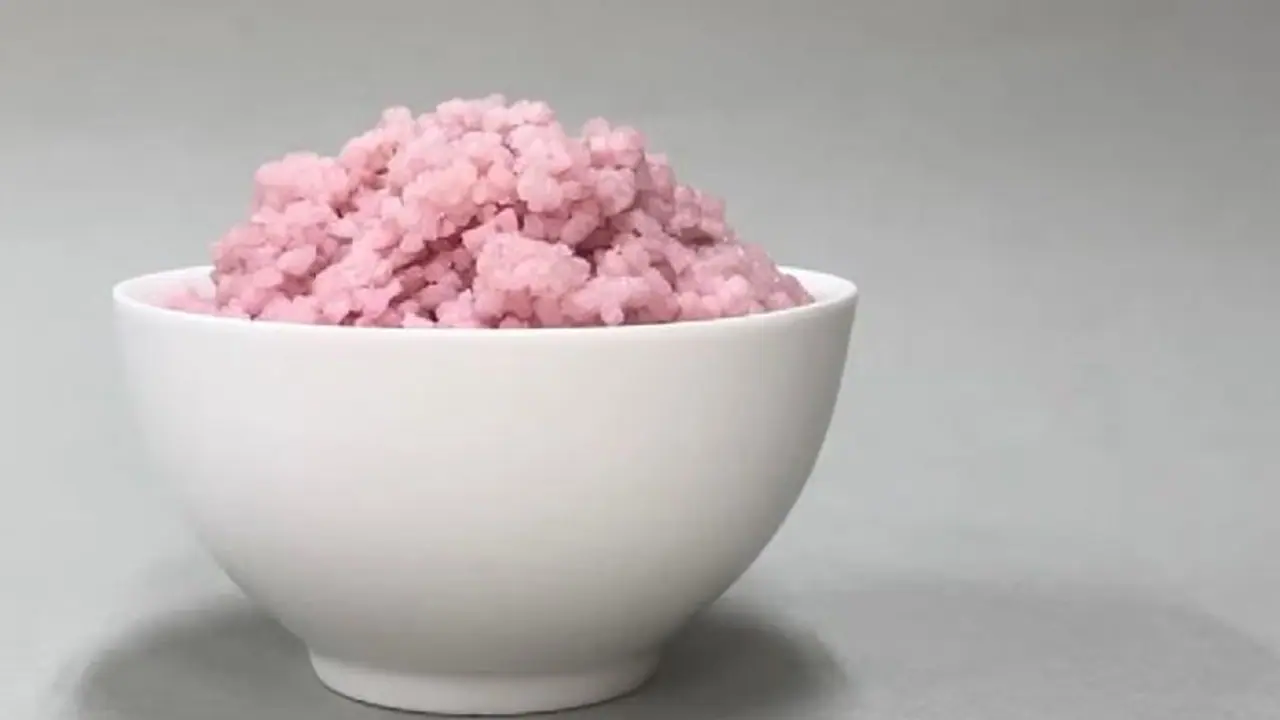South Korean scientists pioneer a revolutionary hybrid food, combining lab-grown beef with rice, using innovative techniques to address global food challenges and potential applications in relieving famine, military rations, and even space food.
In a groundbreaking development, scientists in South Korea have unveiled a potential solution to the environmental impact of a growing global population. The research, led by biomolecular engineer Sohyeon Park from Yonsei University and published in the journal Matter, introduces a unique hybrid food that combines beef with rice, offering a novel approach to food production.

The traditional method of cultivating large parcels of land to meet the demands of a burgeoning population poses significant environmental challenges. However, the South Korean research team has harnessed innovative techniques to create a hybrid rice containing lab-grown beef, which could revolutionize the way we address food shortages.
"Imagine obtaining all the nutrients we need from cell-cultured protein rice. Rice already has a high nutrient level, but adding cells from livestock can further boost it," Park was quoted as saying about the research by Science Alert.
While acknowledging that the product requires some labor-intensive processes, she emphasized its potential to alleviate food pressure in the future.
Rice was selected by the research team due to its status as an exceptional dietary staple, boasting 80% starch and 20% protein along with various other nutrients.
How the hybrid rice was created?
The hybrid rice, resembling a combination of meat mince and rice, is a result of coating rice grains with food-grade fish gelatin and food enzymes. These coatings facilitate the attachment and growth of cells from cow muscle and fat stem cells on the rice grains. After an 11-day cultivation period in a petri dish, the researchers found that the beef-rice hybrid demonstrated increased firmness and brittleness compared to regular rice.
One of the key advantages of this novel approach is the enhanced nutritional content of the hybrid rice. With 8% more protein and 7% more fat than regular rice, the lab-cultured food offers a potential solution to nutritional deficiencies in a rapidly growing population. Biomolecular engineer Sohyeon Park highlighted the possibility of obtaining all necessary nutrients from cell-cultured protein rice, combining the nutritional benefits of rice with those of livestock cells.
While acknowledging the current labor-intensive nature of the production process, researchers remain optimistic about the future applications of this grain-based hybrid food. Sohyeon Park envisions a world where this innovative approach could alleviate food pressure, offering relief during famines, serving as military rations, or even becoming a viable option for space food.
The study also suggests that further adjustments to the hybrid rice could enhance its nutritional profile, making it both environmentally friendly and cost-effective.
"I didn't expect the cells to grow so well in the rice. Now I see a world of possibilities for this grain-based hybrid food. It could one day serve as food relief for famine, military ration, or even space food," said Park.
As scientists explore the vast potential of this grain-based hybrid food, it opens the door to a new era of sustainable and innovative solutions to global food challenges.
